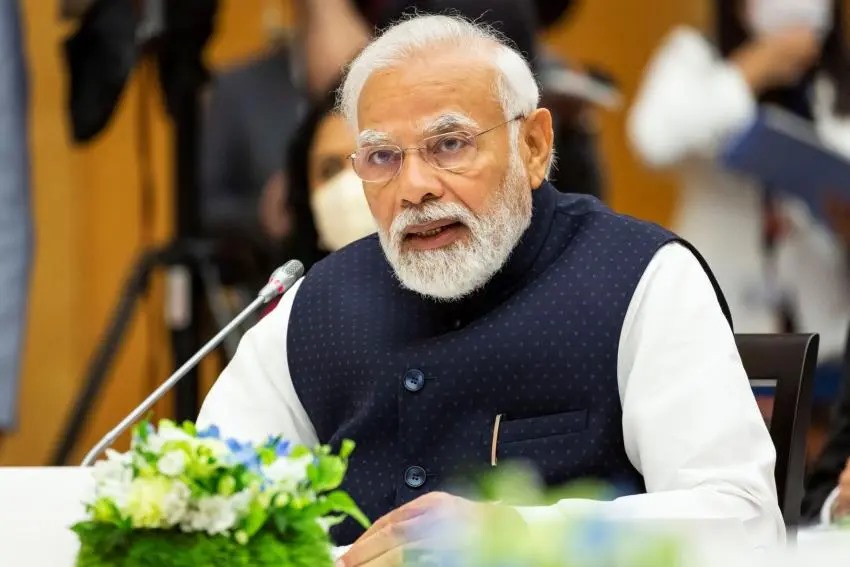
[Photo source: HRW]
By Imraan Buccus
Brics is a complicated beast. On the one hand it offers the first real possibility for building a multi-polar world since the Bandung Conference of 1955. Breaking the Western stranglehold on the global economy, the reliance on the US dollar for global trade, and the capacity for the US and its Western allies to bomb, invade and sanction countries at will would be a major step forward for the global south.
But, at the same time, a good number of the current Brics members, along with potential new members such as Egypt and Saudi Arabia, are authoritarian states.
The lead up to the conference has seen oodles of controversy. Many white commentators in South Africa are hostile to the project, and this exploded when it seemed that Putin might attend, despite the ICC warrant for his arrest. We were treated to the ridiculous spectacle of the DA threatening to arrest the head of a foreign state.
But the deeper issues at play is that the US is losing its global power and sees Russia and China as its key rivals. There is also potential rivalry from Brazil as Lula works to rebuild Latin American solidarity and autonomy. But while the US has a long history of backing coups against left governments in Latin America, its current geopolitical strategy places Russia and China as its key enemies.
India is a very different kettle of fish though. It has long been an ally of the West so that the fact it is now an authoritarian country is seldom raised by the pro-Western media and pro-Western commentators. But while India is a close ally of the US, and Israel, it also has real ambitions for its own global power. It does not wish to be a client state of the US like Rwanda or Kenya.
India’s ambitions for itself on the global stage mean that it is attracted to the idea of asserting its power within Brics, and the rising power of the global south. In a way India is trying to hedge its bets. It is going to be interesting to see how India balances its competition with China and relations with Russia and the US while being part of the Brics project to try and create alternate diplomatic and financial avenues so that the world can transition from unipolar to multipolar global economic and governance architecture.
Once referred to as ‘the world’s largest democracy’ India is certainly a growing economic and political power, and with an excellent education system for the few that are able to access it India has a growing army of professionals working in the great cities of the world. However under Modi and the wider Hindu fascist project it has rapidly transitioned from being a secular state to being a Hindu extremist state.
Today’s India is highly Islamphobic and openly bent on erasing its Muslim history and heritage. Muslims are now de jure rather than de facto citizens, and Christians, Sikhs and other religious minorities are also facing rising discrimination. In the world of internationally acclaimed Indian author and intellectual Arundhati Roy, “you are seeing a transition from a sort of fragile flawed democracy transitioning pretty openly, pretty brazenly into a criminal Hindu fascist enterprise”.
Recent events in the Indian Occupied Jammu and Kashmir where India is forcibly injecting Hindus into Muslims lands and in the state of Manipur where Christians are being killed and churches being burnt by the Hindu extremists have escalated the already very dangerous situation for minorities in India.
On the eve of Modi’s visit to France last month, the EU Parliament passed a strongly worded resolution against fascism in India. Pierre Larrouturou, an MP in EU Parliament said, “In Manipur, for the past two months, we have seen monstrous violence. Over 120 people died, 1,700 homes have been devastated. 250 churches have been destroyed, 40,000 people have fled for their lives. Manipur is no exception. In Kashmir, the situation is even worse, torture, disappearances, arbitrary detentions.” He added that “when in Europe or in the USA, Modi presents himself as the heir to Mahatma Gandhi, the great soul. But in reality, In India, there are millions of Christians and millions of Muslims who suffer every day. The government doesn’t respect fundamental rights and puts forward a Hindu nationalist discourse that is absolutely scandalous, alongside an unbearable use of law enforcement.”
A good number of the countries that are keen to join Brics are Muslim majority countries. This includes Egypt, Saudi Arabia and Indonesia. While the West relentlessly seeks to drum up opposition to Russia and China for these countries the real antagonist within the global south will be India. How this will play out is not clear, but it’s very difficult to imagine any Muslim majority country ceding any sort of leadership to India in global affairs.
Given that India wants to take a leadership position in world affairs, and to be more than another client state of the US, this creates a difficult situation for India, as well as the Muslim majority countries. Brics would certainly be strengthened if countries like Egypt, Saudi Arabia and Indonesia joined, but it’s hard to see that this wouldn’t destabilize the project given the inevitable tensions with the Hindu fascist regime in Delhi.
India will not abandon its commitment to Hindu supremacism for as long as Modi and the BJP are in power. That means that an expanded Brics will be fraught terrain for India. Will India try to navigate that complexity? Or will it ultimately realise that it will have to stay allied to the US and Israel and give up on its aspirations for leadership in the global south?
It’s too early to say either way, but it’s clear that an expanding Brics will make things very complicated for India.
Dr Buccus is editor of Al-Qalam.











